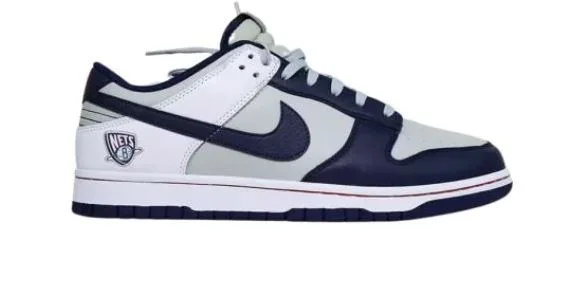Injured and It Wasn’t Your Fault? You Deserve More Than Just an Apology
When someone else’s negligence turns your life upside down, an apology, especially an insincere one, is hardly enough. You may be dealing with physical pain, lost wages, medical expenses, and emotional distress. In such situations, you are entitled to more than just empty words or surface-level gestures. You deserve accountability, justice, and fair compensation.
Understanding your rights and options is the first step toward recovery. This article examines why a mere apology is insufficient, outlines the available legal avenues, and explains how personal injury claims help victims regain stability and control.
The Problem with Empty Apologies
What Is a Non-Apology Apology?
In many cases, especially involving large corporations, insurance companies, or negligent individuals, the response to a serious injury may come in the form of a non-apology apology. This phrase refers to a statement that appears to be an apology but avoids admitting fault or responsibility. Examples include phrases like “I’m sorry you feel that way” or “Mistakes were made.” These deflections do little to help the injured party heal or move forward.
Learn more about non-apology apologies and why they are often used as a legal shield.
Why a Genuine Apology Is Not Enough
Even if the responsible party offers a sincere apology, it doesn’t cover medical bills, long-term disability, or emotional trauma. Personal injury law exists to ensure that victims receive the compensation necessary to rebuild their lives. Holding someone accountable through a legal claim is not about revenge; it’s about fairness and recovery.
Types of Personal Injury Cases That Deserve More Than Apologies
Car and Truck Accidents
Auto accidents are among the most common causes of personal injury. If you were hit by a distracted, drunk, or reckless driver, you may be facing vehicle damage, hospital bills, or even permanent injury. A quick “sorry” from the at-fault driver won’t fix these issues, but a personal injury claim can help you seek compensation for everything from medical costs to emotional suffering.
Slip and Fall Incidents
Slipping on a wet floor in a grocery store or tripping over uneven pavement on public property may seem like minor mishaps, but they often lead to serious injuries like fractures, spinal damage, or head trauma. Property owners have a legal responsibility to maintain safe environments. When they fail in that duty, a civil claim can make a real difference in your recovery process.
Medical Malpractice
Doctors and healthcare providers owe patients a standard of care. When they make errors such as misdiagnoses, surgical mistakes, or improper treatment, the results can be devastating. While the hospital or practitioner may issue a carefully worded apology, that does nothing to reverse the damage done. In these cases, pursuing a malpractice claim is a crucial path toward justice.
Workplace Injuries
Employers have a legal duty to ensure safe working conditions. If you’ve been injured on the job due to inadequate safety protocols or defective equipment, you could be entitled to more than workers’ compensation. In some cases, third-party claims are also available if another entity (such as an equipment manufacturer) shares responsibility.
What Compensation Can You Seek in a Personal Injury Claim?
Economic Damages
These are tangible losses that can be calculated in monetary terms, such as:
- Medical bills (past and future)
- Lost wages
- Property damage
- Rehabilitation costs
- Out-of-pocket expenses (transportation, home care, etc.)
Non-Economic Damages
These damages address intangible losses like:
- Pain and suffering
- Emotional distress
- Loss of enjoyment of life
- Disfigurement or scarring
- Loss of consortium (relationships)
Punitive Damages
In some cases, particularly where gross negligence or intentional harm is involved, a court may award punitive damages to punish the wrongdoer and deter similar behavior in the future.
Why You Shouldn’t Accept the First Offer
Insurance Companies Aren’t On Your Side
Insurance adjusters may seem sympathetic, but their primary role is to save money for their employers. The first settlement offer is often a fraction of what your claim is worth. It may not even cover future medical treatments or lost earning potential.
You May Not Know the Full Extent of Your Injuries
Some injuries take weeks or even months to fully manifest. Accepting a quick settlement may leave you without options if your condition worsens later on.
This is why it’s crucial to consult an experienced legal professional before agreeing to anything.
The Role of a Personal Injury Lawyer
How an Attorney Can Help
Personal injury lawyers provide essential services to injured victims, including:
- Investigating the accident
- Gathering evidence and witness statements
- Consulting with medical experts
- Calculating the true value of your claim
- Negotiating with insurance companies
- Filing lawsuits and representing you in court, if necessary
Hiring a lawyer often results in significantly higher settlement amounts.
Choosing the Right Legal Advocate
Not all attorneys are equally equipped to handle your case. Look for a firm with a strong track record, deep resources, and compassionate client service. One well-recognized and trusted firm is Whitley Law Firm, known for advocating aggressively for injury victims across North Carolina.
What to Do After an Injury That Wasn’t Your Fault
1. Seek Immediate Medical Attention
Always prioritize your health. Even if you feel fine, internal injuries or concussions can go undetected without proper evaluation.
2. Document Everything
Take photos of the scene, gather witness information, keep receipts, and record every detail you can remember. These pieces of evidence will be crucial later on.
3. Don’t Speak to the Other Party’s Insurance Without Counsel
Anything you say can be used to reduce your claim. Politely decline to make a statement until you’ve consulted with a legal professional.
4. Contact a Personal Injury Lawyer
Act quickly, there are time limits for filing claims, known as statutes of limitations. A knowledgeable attorney can help you meet deadlines and avoid costly mistakes.
Conclusion: Demand More Than Just Words
In the aftermath of an injury caused by someone else’s carelessness, an apology, whether heartfelt or hollow, is simply not enough. You deserve financial recovery, emotional validation, and legal justice. Personal injury law is here to ensure that those who’ve suffered don’t have to pay the price for another’s negligence.
Don’t settle for less. If you’ve been hurt and it wasn’t your fault, explore your legal options and take action that will truly help you move forward.





